Jill Lepore Quotes & Sayings (Page 7)
Jill Lepore quotes and sayings page 7 (historian). Here's quote # 61 through 70 out of the 78 we have.
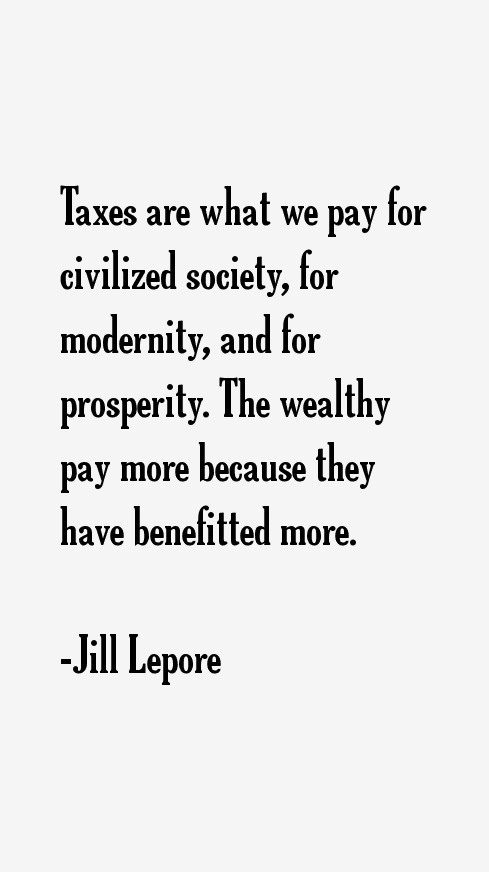
“Taxes are what we pay for civilized society, for modernity, and for prosperity. The wealthy pay more because they have benefitted more.”
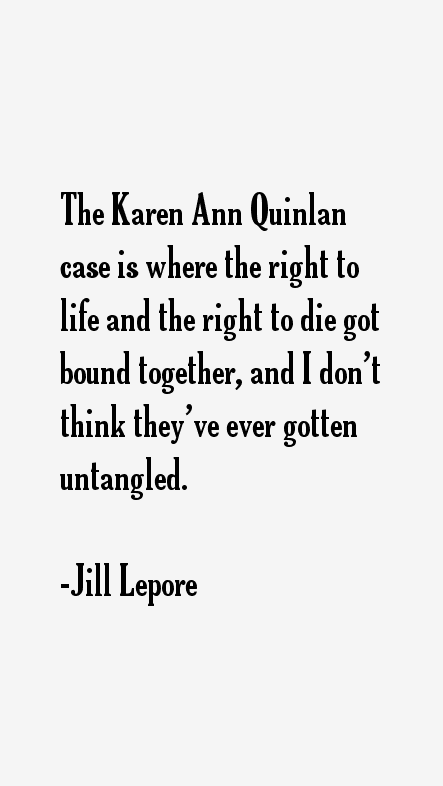
“The Karen Ann Quinlan case is where the right to life and the right to die got bound together, and I don't think they've ever gotten untangled.”
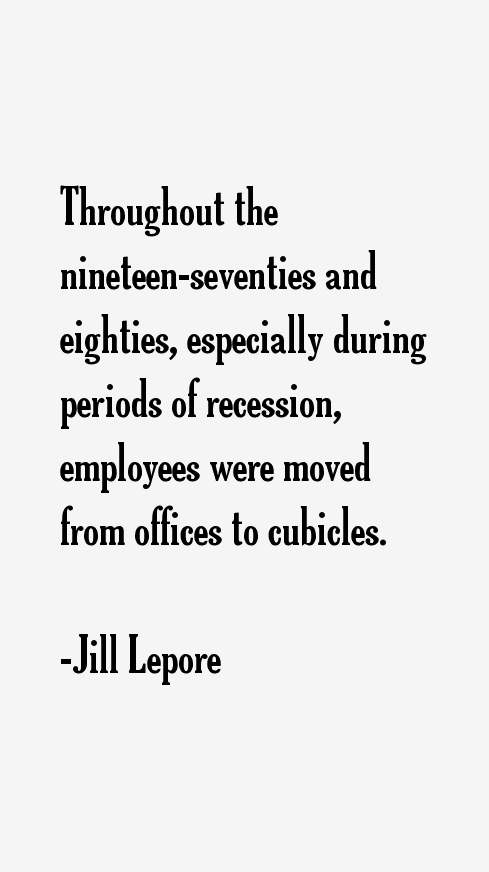
“Throughout the nineteen-seventies and eighties, especially during periods of recession, employees were moved from offices to cubicles.”

“When I was a kid, I used to deliver the newspaper all over town, cramming papers between screen doors and into mailboxes and under doormats.”

“Book reviewing dates only to the eighteenth century, when, for the first time, there were so many books being printed that magazines - they were new, too - started printing essays about them.”

“One thing that always frustrated me was that, while Benjamin Franklin's was the best-known face of the eighteenth century, no one ever took his sister's likeness.”
“An ordinary life used to look something like this: born into a growing family, you help rear your siblings, have the first of your own half-dozen or even dozen children soon after you're grown, and die before your youngest has left home.”
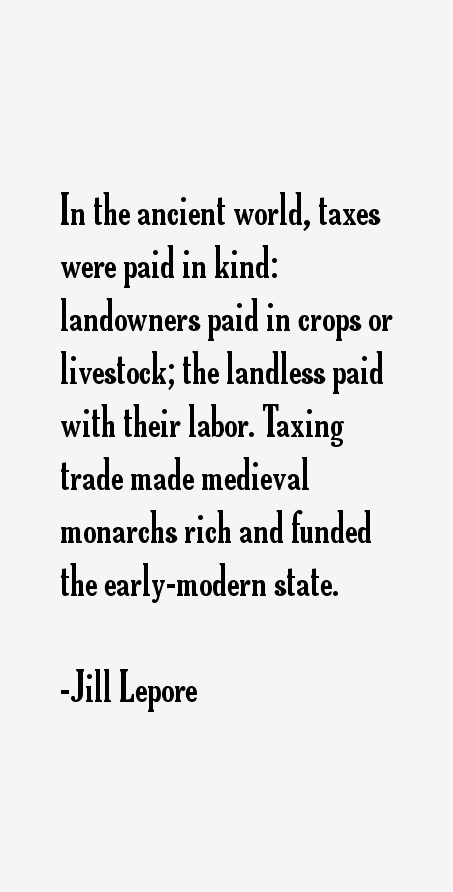
“In the ancient world, taxes were paid in kind: landowners paid in crops or livestock; the landless paid with their labor. Taxing trade made medieval monarchs rich and funded the early-modern state.”
“In the last years of the nineteen-eighties, I worked not at startups but at what might be called finish-downs. Tech companies that were dying would hire temps - college students and new graduates - to do what little was left of the work of the employees they'd laid off.”
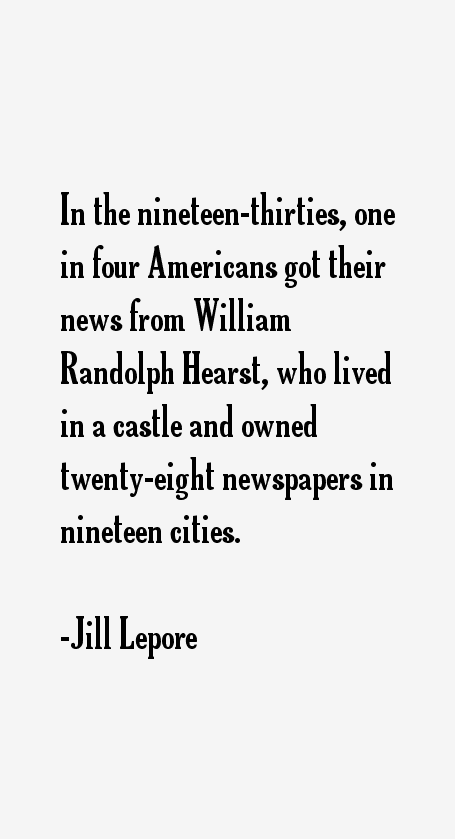
“In the nineteen-thirties, one in four Americans got their news from William Randolph Hearst, who lived in a castle and owned twenty-eight newspapers in nineteen cities.”
Jill Lepore Quotes Rating
No Ratings Yet
Leave A Comment
























